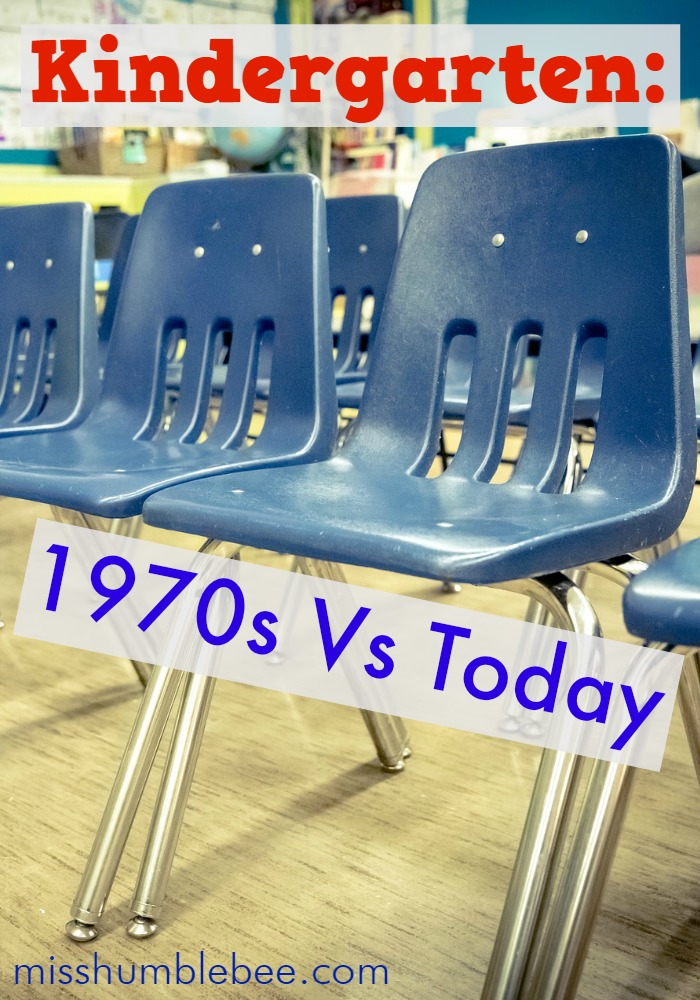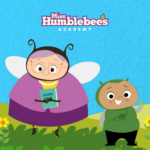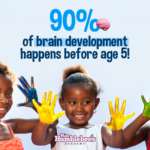We’ve all seen the articles chronicling the changes that have occurred in various cultural realms over the past 40 years:
Parenting in 1970 vs Parenting in 2016
College in the ’70s vs College Today
My Summers as a ’70s Kid Compared to My Kids’ Summers Now
These humorous articles usually have a nostalgic feel, the message balancing somewhere between “those were the days” and “you can’t go home again”.

Kindergarten: 1970s Vs Today
It’s true that much has changed in the past 40 years, and one area where this is readily apparent is in the realm of education. Since we here at Miss Humblebee’s Academy are focused on early childhood education, we thought it would be fun to take a look at all that has changed in kindergarten since the ’70s. All of our information comes from firsthand accounts unless otherwise noted.
Then: Half-Day kindergarten was the norm
Now: Full-Day kindergarten is the norm
According to the U.S. Census Bureau, fewer than 15% of kindergartners attended full-day programs in 1970. Some schools had a full-day option, but the afternoon was spent in play and rest time.
By 2011 77% of kids attended kindergarten full-day. The change can be attributed, at least in part, to two factors:
1) More families have two parents working outside the home, necessitating full-day childcare, and
2) The academic standards teachers are required to cover are more extensive than the years ago, necessitating more teaching time to squeeze everything in.
Then: Kindergarten was more play-based
Now: Kindergarten is more academics-focused
As we just touched on, state and federal educational standards are much different now than they were in the ’70s. While standards-based education has its merits (for example, if a child has to move partway through the year, standards-based education ensures some continuity between schools), it can also have its downfalls.
Teachers can feel pressured to “teach to the test”, forgoing hands-on experiences and play-based learning in favor of worksheet after worksheet done while sitting for long periods of time.
Thankfully, there are many outstanding teachers who find creative ways to combine the best of both worlds, teaching children the skills required in a developmentally appropriate manner.
Then: By the end of kindergarten, students should try to write or copy letters (Source: Chicago Now)
Now: By the end of kindergarten, students should “read emergent-reader texts with purpose and understanding.” (Source: Common Core)
At some point over the past 40 years, the first grade of the ’70s became the kindergarten of today, while the kindergarten of the ’70s became the preK of today. In other words, the skills that were once taught in kindergarten are now the skills that children entering kindergarten are expected to know.
Parents can help prepare their children for kindergarten with the help of Miss Humblebee’s Academy and our FREE Kindergarten Readiness Checklist. Sign up for it here.
Then: By the end of kindergarten, students should be able to count as many as ten items (Source: Chicago Now)
Now: By the end of kindergarten, students should be able to count as many as twenty items (Source: Common Core)
Ditto to our last point.
Then: A child can travel alone for four to eight blocks (Source: Chicago Now)
Now: No
Although this skill is not directly related to kindergarten, it was listed as one of the skills that shows a child is ready to move from kindergarten to first grade in the 1970s and was probably the most shocking one in it’s difference from today.
Many adults can clearly remember walking to and from school without a parent at an early age, but the idea of allowing today’s children to do that is not only frowned upon, but in some cases parents have even been arrested for allowing their children that bit of freedom.
What do you remember from your time in kindergarten that is different for today’s children? Tell us in the comments below.











I loved kindergarten in the 70’s. I remember the big fat crayons and learning the alphabet. I put my little girl in kindergarten five years ago. The principal called me a week in saying my child would fail as she didn’t know how to read. I was floored. Fast fwd a few years my little boy attended kindergarten and started begging to stay home. The teacher yelled all the time because the kids didn’t know the answers. I now homeschool. It’s sickening how our children are being forced to forgo childhood to keep up with other countries. We now have schools full of overwhelmed kids who are so stressed because even teachers are overwhelmed trying to teach for testing standards and common core instead of the joy of teaching and learning.
Honestly, I think since the standards have changed so much, then the date a child starts school needs to change as well. I attended kindergarten in 1976/77. I remember it just as you have described. When my own children were being screened 20 years later things had really changed. I remember the teacher telling us one of ours sons would not do well because he did not hold his scissors properly. I was like,”Well isn’t that why he goes to kindergarten? To learn how?” We put him in school but by 1st grade he was really struggling. So when it came time for his brothers to go we red-shirted them (held them back 1 year). They are October babies so they started kindergarten at age 5 but turned 6 1 month later. It made a huge difference. The cut off date in our state is a child must be 5 by Dec 1 to begin kindergarten. So there are children being expected to know how to read (and use scissors) when, let’s face it, they are still babies. It’s not right. The cut off should be moved up to age 6 or the date should be moved back to August. Just because a child is nearing in on his 5th birthday does not mean he is necessarily ready for academic learning. Every child is different. But since the standards are so high I think we need to cut these kids some slack and just keep them home or in Prek for another year. What difference does it make if they graduate hs at age 17 or 18? It would also mean perhaps they would be a little more mature for college on the other end. Anyway, just my two cents. Love your website.
Omg!! I couldnt agree more!! My kids are in kinder about a monrh and a half and they all say danger of failing.. Mind you i was on waiting list for 2 years for them to attend preschool or head start type of program. Now.. Its my kids are going to fail because the teachers and todays standards are to high. Barely 5 years old and they expect them to know math..
What year did all of this change? I was in kindergarten in 2000 and it was still fun.
Agreed. I was in kindergarten around 1999-2001